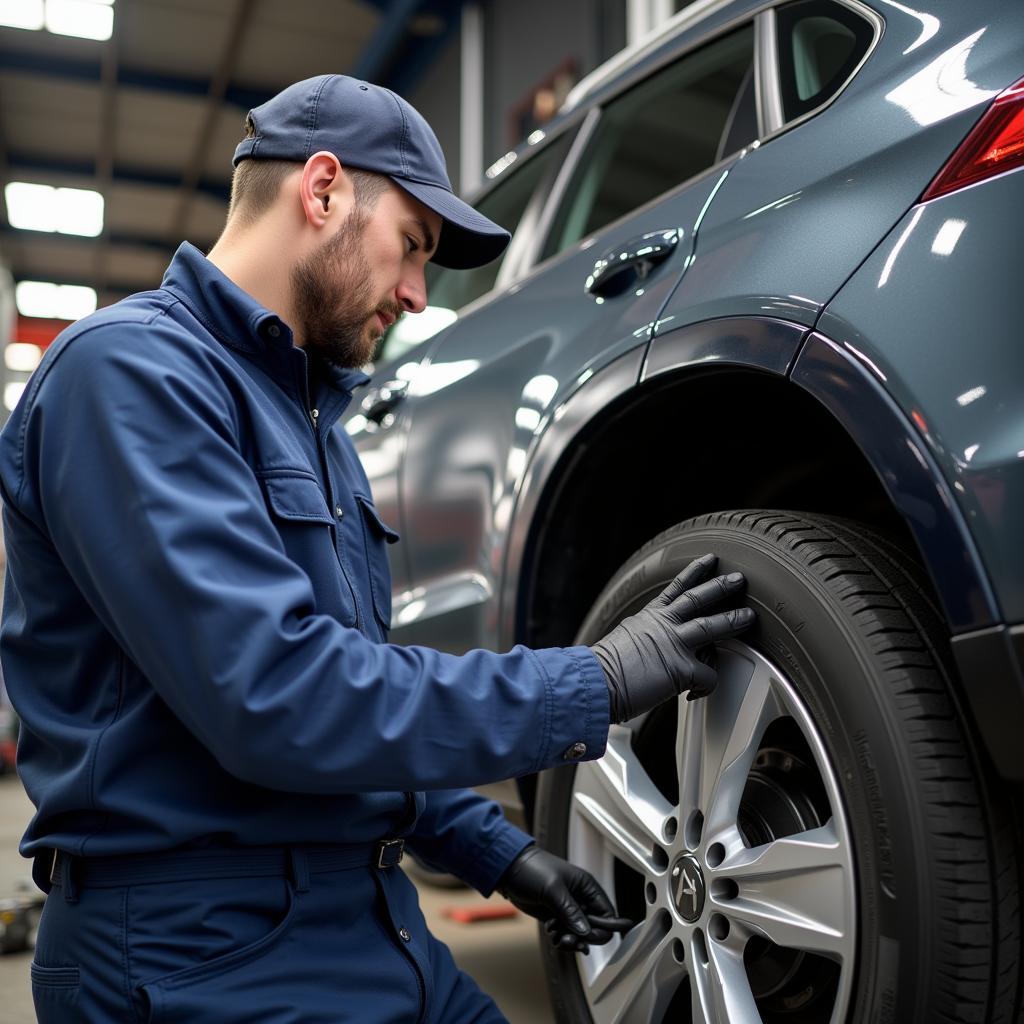If a problem with car ignition is plaguing you, this comprehensive guide will help you understand the complexities and potential solutions. We’ll cover everything from simple checks to more complex issues, empowering you to diagnose and potentially fix the problem yourself or to have an informed conversation with a mechanic.
Understanding the Car Ignition System
The ignition system is the heart of your car’s starting process. It’s responsible for providing the spark that ignites the air-fuel mixture in the engine cylinders, bringing your vehicle to life. A malfunction in this system can lead to a frustrating “no-start” situation or other performance issues.
A key component is the ignition switch. This switch, activated by your car key, initiates the electrical flow to the rest of the system. Next, the power flows to the ignition coil, which transforms the low voltage from the battery into the high voltage required to create a spark. This high voltage travels through the ignition wires, also known as spark plug wires, to the spark plugs. The spark plugs then deliver the spark across a small gap within the combustion chamber, igniting the fuel and starting the engine.
Common Problems with Car Ignition
Several things can go wrong with the ignition system. A failing ignition switch can prevent the car from starting altogether. A faulty ignition coil can lead to misfires or a complete loss of spark. Worn spark plugs can cause poor fuel economy and rough idling. Bad ignition wires can also cause misfires, especially in damp weather.
Sometimes, the problem isn’t with the ignition system itself, but with related components. A dead battery, for instance, can mimic ignition problems. Similarly, a faulty starter motor can also prevent the engine from cranking.
If your car is silent after ignition, check this helpful resource: what is problem if car is silent after ignition.
Diagnosing If Problem with Car Ignition
Diagnosing an ignition problem requires a systematic approach. Start with the simplest checks. Is the battery charged? Is the car in park or neutral? Does the starter motor crank the engine? If the starter cranks but the engine doesn’t start, it’s time to delve deeper into the ignition system.
You can test the ignition coil using a multimeter. You can also check the spark plugs for wear and tear. If you’re uncomfortable working with electrical components, it’s best to consult a qualified mechanic. They have the tools and expertise to diagnose and fix the problem accurately.
Troubleshooting Car Ignition Issues Yourself
While some ignition problems require professional attention, there are a few things you can try yourself. If you suspect a dead battery, jump-starting the car is a good first step. If you think the spark plugs are worn, replacing them is a relatively simple DIY task.
However, if you’re unsure about the cause of the problem, it’s crucial to seek professional help. Attempting complex repairs without proper knowledge and tools can lead to further damage and potentially dangerous situations.
For more insights into specific car issues, you might find these articles helpful: mr bean car problem and alto 800 car problems.
When to Seek Professional Help
If you’ve tried basic troubleshooting steps and the problem persists, it’s time to call a professional. A qualified mechanic has the expertise to diagnose and fix complex ignition problems quickly and efficiently. Delaying professional help can exacerbate the issue and potentially lead to more costly repairs down the road.
“A properly functioning ignition system is essential for reliable starting and overall engine performance,” says automotive expert, Robert Johnson. “Don’t underestimate the importance of regular maintenance and timely repairs.”
Conclusion
Dealing with a problem with car ignition can be frustrating, but understanding the system and following a systematic approach to troubleshooting can make the process less daunting. Remember, if you’re unsure about any step, consulting a qualified mechanic is always the best course of action. Don’t hesitate to reach out to AutoTipPro for assistance. We’re available at +1 (641) 206-8880 or you can visit our office at 500 N St Mary’s St, San Antonio, TX 78205, United States. A healthy ignition system ensures a smooth and reliable driving experience, and we are here to help you achieve that.
For more information on engine problems, check out common engine problems in cars and new orleans car theft problem.
FAQ
- What are the signs of a bad ignition coil? Symptoms include misfires, rough idling, reduced fuel efficiency, and difficulty starting the engine.
- How often should spark plugs be replaced? Generally, spark plugs should be replaced every 30,000 to 100,000 miles, depending on the type of spark plug and the vehicle.
- Can I drive with a bad ignition switch? While you might be able to start the car intermittently, driving with a faulty ignition switch is unsafe and can leave you stranded.
- What tools do I need to test the ignition system? A multimeter is essential for testing the ignition coil and other electrical components.
- How much does it cost to replace an ignition coil? The cost varies depending on the vehicle make and model, but it typically ranges from $100 to $300, including parts and labor.
- What is the difference between the ignition system and the starter? The starter cranks the engine, while the ignition system provides the spark to ignite the fuel.
- Can extreme temperatures affect the ignition system? Yes, both extreme heat and cold can impact the performance of the ignition system components, particularly the battery and spark plugs.





Leave a Reply